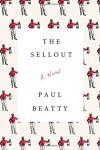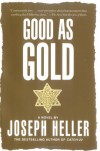Flicker Reads
The Golden Notebook

It took me a long time to finish this book, and truthfully, in the middle of a busy time at work, it was overambitious for me to attempt it. It's not a novel in any true sense of the word, and quite honestly, I had no idea what sort of book I was getting into when I began The Golden Notebook. I'm not planning to do a thorough analysis of the story--not even certain I could. What I will say is that every page and every chapter exudes a level of prosaic mastery that is very difficult to find today. I thought some of the story's material (for example, Anna's sexual encounters and involvement in the British Communist Party) did not work very well as central concerns for a 2016 reader. All of her Communist ambitions seem so... quaint and, in some ways, naively pretentious given her status in the European middle class, particularly in relation to African countries still reeling under colonial mismanagement. Malcolm X once noted, "I've never seen a sincere white man, not when it comes to helping black people. Usually things like this are done by white people to benefit themselves. The white man's primary interest is not to elevate the thinking of black people, or to waken black people, or white people either. The white man is interested in the black man only to the extent that the black man is of use to him. The white man's interest is to make money, to exploit." Based on the tragic occurrence of Jackson's firing, I can't help but see his point. At the end of the day, I'm not certain how I feel about the whole of this work, whether it feels like it moved me somewhere, whether it works as a cohesive whole. I simply don't care to ask that question. I found every room, every turn of the corner, every new episode, to be enthralling, and that was enough for me. I listened to the book on audio as performed by the incomparable Juliet Stevenson, who gave so much of herself in the performance-- I think I fell a bit in love with her throughout the course of the 27 hours. I have purchased another classic work which she narrates, Woolf's A Room of One's Own, and I'm moving that title up to the first page of books to read in the near future.
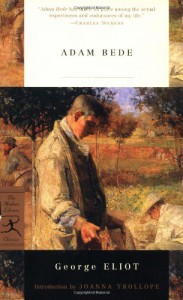
George Eliot's Adam Bede hinges on that most uninspiring 19th-century topic: the fallen woman. I've been running into these novels here and there with David Copperfield and Anna Karenina. The theme never does much to move us as modern readers, tending instead to showcase itself as an interesting museum piece for us to consider before returning to the certainty of our own century's issues. So while there are a number of aspects (character, setting, dialogue) to admire about her book, this doesn't work well. The whole thing is made more incongruous by the fact that the author must dance around the particulars of Hetty and Arthur's sexual involvement, owing to moral sensibilities of the time. And that Hetty is dropped like a hot potato once Eliot is done with her.
I plan to go from here to Middlemarch later this year, and it will be interesting to trace the development of Eliot as a writer in those intervening years.

When I was young, I learned a song in school. It was a round with one simple line: Make new friends, but keep the old. One is silver, and the other gold.
The memoir Just Kids focuses on the author Patti Smith's relationship with Robert Maplethorpe, who was to become one of America's most important avant-garde photographers. Early chapters describe how the two find each other, penniless in New York, and then in an on-again-off-again romance, co-create and support each other's artistic growth. There are hints that this book has been edited down from something larger, making for a bit of uneven pacing. But Smith wisely skips the details of her music career and puts the spotlight on her feelings and concerns for Robert and the strength of their oft-tested bond. As their careers blossom and their paths diverge, you can feel the sadness and tension grow in the story. On some level, this great rock&roll queen wanted nothing more than to have her best friend with her for always, like a little girl at Coney Island. When it's all said and done, this is the secret of Just Kids' narrative power- that it taps into that aspect of all our own (comparatively ordinary) lives and reminds us how hard it is to keep our friends close and safe through the swirling currents of individual experience.
I often will listen to an audiobook on a high speed, but there was something about this story and Patti Smith's voice that demanded a real time experience. Smith is a poet, and one can feel that in the weight of her spoken words. I highly recommend the audio version.
I Capture the Castle

I've promised myself that during the coming year, I will be more careful and avoid reading crap. There were points in the past few months where I became so bogged down in terrible writing that I was stymied, unable to go forward or backward. Thankfully, with I Capture the Castle, I've found the perfect novel. It is so wonderfully written, so brimming with insight and well-drawn characters, that I feel absolutely recharged. In Cassandra, we have such a lovable main character that it's hard for me to think of another protagonist I've encountered in the past year who is more fun to listen to. No, I'm drawing a blank. But all of the characters are excellent. I felt a pang of dread just for a moment in approaching the last few pages, afraid we were going to be presented some sort of hackneyed coupling, but thank God, no, it was all so perfectly well done. I noticed that Smith wrote four volumes of autobiography toward the end of her life, and it would be very interesting to get a look at them. I believe they're out of publication, however. Sometimes it's a bit sad when you find a book like this - an absolute gem - and there seems to be little pointing to her secured place in literature.
Utterly Uninteresting

It's good to clean up the audio bookshelf before year's end by finishing a few titles that have lingered. With H is for Hawk, I held on because I didn't want it to end. With this book, I couldn't bring myself to face it without a couple of stiff drinks.
It's true--I've been enjoying my vampire novels lately, but this was not a pleasant reading experience. The first confusing and irritating element of the story was how disjointed it felt, with chapters seeming very episodic, only loosely attached to those before, as if each one were published separately as a short story. Is this a novel or a Jeeves collection, I wondered. Aside from that, there are certain principles of storytelling which state that we readers only care about the intricate machinations of plot and world building so far as our interest and feeling for the characters allow. This needs to be stapled above the computer of every would-be sci-fi/fantasy writer hoping to score big with his series. Sadly, Hayes provides us with only the barest foundation of character before launching them all along their merry way. There is nothing at all satisfying, for example, about the story's "surprise conclusion" because nothing has sufficiently been built around that in order to make it meaningful. This makes it a deus ex machina, providing a neat conclusion, but with little underlying emotional importance to the reader. I hate it when something happens that we completely don't understand followed a chapter later with a lengthy explanation of what just happened.
Overall, I think the best way to describe the feeling of this book is resembles a set of "adult swim" cartoons.
Contrast this book with one of Jim Butcher's urban fantasies. Very similar in some of the urban "window dressing," but Butcher knows how to pace and build his novels so that event never overrides character. Even minor characters have developed distinct voices.
Speaking of voices, ugh. I enjoyed Kirby Heyborne in his reading of the Jim Henson biography a couple of years ago. But this story does not suit him at all. Heyborne hits the same five notes over and over with his voice as he modulates up and down, inducing a sort of audial sea sickness in the listener. I had to speed up the pace to 2.25 just to push through the nausea.
I will admit being snared by the title, and perhaps in parting me from my two or three bucks is all the victory Drew Hayes needs. God, I hope he uses his accumulated loot to take a writing class.
H is for Hawk

I came to this one without knowing a single thing about it. As it turns out, it was an absorbing personal account of the author's struggles following the death of her father. The narrative weaves together several interesting threads, including the training of Mabel, her new goshawk; the parallel description of the life of author T. H. White and his training of a goshawk; and the author's struggles with mental illness. All elements were beautifully written, and I had to purchase White's The Goshawk halfway through the book in order to read this interesting story for myself. It was the description of mental illness that I found most compelling. I was diagnosed with bipolar disorder during this past year, and reading about someone else in a very similar set of circumstances provided me a strange comfort. As Macdonald immerses herself in training Mabel, she describes the growing feelings of misanthropy and skewed perception until one day, in the book's best chapter, she realizes something is terribly wrong within her. I won't say more. I really loved the time spent with this book and was sorry for it to end.
Born with Teeth - A Memoir

I've been enjoying memoirs like this more and more. I don't have any particular affinity for Kate Mulgrew as a performer, but like one might during a long evening of wine and conversation, simply allowed her story to spill over me as I listened to her narrate the audiobook. Mulgrew, with her seasoned smoker's purr, has become a favorite narrator over at Audible for many readers, so it seemed fitting. In this story, she wisely focuses on a handful of key ideas for the subject matter, including the relinquishment of her first child for adoption, the failure of her first marriage, her relationship with her mother, and the meeting of the man who would become her second husband. There's a romantic quality to the writing and to the author's thought processes that are saccharine - a matter of personal taste. I enjoyed hearing her relate anecdotes of working with Richard Burton and feel I might look for something on his life later. In reading memoirs and entering these "relationships," be it because of loneliness or mere instinct, we tend to ask ourselves how well we would get on with the writer. Just about the length of this book, in this case.
Frankenstein
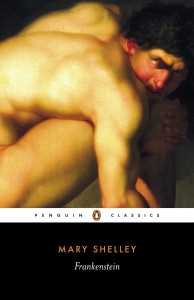
I saw the film Babadook the other day, and thought about it as I read Frankenstein. A review of the film that I read online made the following interesting observation:
“Zero-sum” is a term from game theory. Broadly, it describes a situation where the only possible result of conflict is that one side wins, and the other loses. (It’s zero-sum because if you state mathematically that the winner is +1 and the loser is -1, the sum of the two results is zero.)
The majority of action, suspense, and especially horror films follow this format: there is a clear winner and a clear loser. Horror as a genre has more of a tendency than most for that endgame to not necessarily favor the protagonist — often, the supposed hero doesn’t win.
But, in The Babadook, something else happens…
Similarly, as the plot of Frankenstein unfolded, I felt that the correct pathway offered to our protagonist was one that would allow for the monster's existence-- i.e. the monster would be tolerated and nurtured. What is clear to readers, as we are allowed to spend a great deal of time in the monster's head during the central part of the narration, is that the monster is not inherently evil, and that it is driven to evil acts by being constantly pushed away and out of the light of human companionship. It's only when driven into the shadows that it seeks to enact malicious deeds. If Victor had been able to accept the monster, to teach it and to guide it, to bring about a non-zero-sum solution, who knows what other ending to the story he could have created? As is, he spurns it and thus sets up the nasty karmic rebound he must suffer as a result. Mary Shelley seemed intent on showing us that as we reject the amoral impulses of our nature as being somehow tainted and unworthy of conscious integration, we set ourselves up for horrifying results.
Black Echo (Bosch #1)
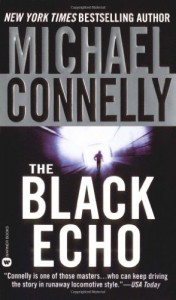
Anyone care to hear a brief rhapsody on my growing appreciation for Michael Connelly? I read through the Lincoln Lawyer books a year or two ago, and really enjoyed them, plus a couple of stand-alones here and there. It wasn't clear how good he was then because I hadn't explored quite as many really bad books in the crime thriller genre. Finishing Black Echo today, I can see how easy Connelly makes it look, but in reality, there is a ton of sweat and skill at work. Certainly there are plot holes, but there are always plot holes in genre fiction. With Connely, you can be confident that the pacing and underlining description will be done well.
Foundation

An elite group of scientists tries to keep learning alive during a galactic Dark Age in Isaac Asimov's Foundation. Yes, that's the pithy description, but unfortunately for the reader, the book struggles to live up to this description. One essential problem is how Asimov chooses to set the novel over several generations so that it becomes a group of short stories loosely linked by theme and story arc. The early stories are more compelling, with the last chapter being the least interesting of all; this leaves the reader with the disappointing sense of having walked a great distance for a drink of water, only to find a warm puddle at the end of the journey. Like Heinlein, Asimov isn't so much a literary artist as a storyteller who delights in the devious machinations of plot and situation. Characters get fleshed out just enough to establish basic motivations before they get pushed on their way. There are certainly readers who will forgive these shortcomings in return for what Asimov does provide- however, I'm not one of that crowd. So, while I found the premise vaguely intriguing, Foundation offered me little more.
Note: my first review for some time. Trying to come back and finish the year on a positive note after being sidelined with mental health problems for a few months.

 2
2

 1
1




